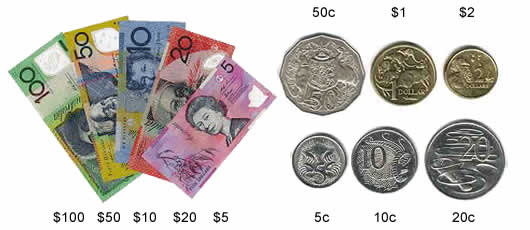Visas
All visitors to Australia (except New Zealanders) require a visa which must be obtained prior to travelling to Australia.
For visitors from the United States, Europe, the United Kingdom, Ireland, Canada, Malaysia, Singapore, Japan, Hong Kong and South Korea who intend to stay for less than three months this will be an eVisitor for Europeans or ETA for North Americans and some Asian nationals.
These electronic visas can be easily obtained online, replace a stamp in your passport, and are valid for multiple entries into Australia over a period of three months.
It is your responsibility to ensure you have the appropriate visa before coming to Australia. If you have any questions, please visit the Department of Immigration.
Customs
Because of Australia’s position as an island nation, many travelers will find that Australian Customs has somewhat stringent regulations compared to some other countries. Of particular note is that most food, plant, and animal material is prohibited from being brought into the country.
For more details please visit Australian Customs.
Currency
Australia’s currency is the Australian dollar. Our colourful, waterproof notes come in $100, $50, $20, $10 and $5 denominations, along with $2, $1, 50¢, 20¢, 10¢ and 5¢ coins. Uneven purchase amounts such as $1.97 are rounded up or down to the closest denomination.
To check the latest exchange rates, visit XE. As of the 25th of October 2016, AU$1 = US$0.76 / CAN$1.01 / €0.70 / SEK6.79 / £0.63 / NZ$1.06.

Electricity
Australia’s electrical current is 240v, 50Hz AC. Our plugs have 2 flat metal pins shaped like a “V” and some contain a third flat pin in the centre.

Most travelers will need a plug adapter for Australia. North Americans will also need to check that their electrical appliances can handle 240v (if you have an electrical item that is not rated for 240v you may also require a transformer).
Time Zone
Perth is on Australian Western Standard Time (GMT +8) year round and there is no observed daylight savings time. During the Aussie Open Perth is 13 hours ahead of New York, 16 hours ahead of Los Angeles, and 6 hours ahead of Helsinki.
Climate
Perth experiences a hot and dry summer from December through March, with February being the hottest month. The average high temperature in January and February is approximately 32C (90F), and the average overnight low at this time of year is 18C (65F). However it is not unusual for the mercury to soar up to and above 40C (104F) on occasion and for some summer nights to stay as warm as 26C (79F). Fortunately Perth is also one of the windiest cities in the world, and the afternoon sea breeze known as the “Fremantle Doctor” often cools areas near the coast in the afternoon.
Perth gets more sunshine than any other major city in Australia, and the sun beats down in the summer with an average UV Index of 12 (which is more intense than just about anywhere in North America or Europe). Hats and sunscreen are vital in our summer, and wearing a shirt or rash vest while swimming is highly recommended.
Although it doesn’t rain much in our summer, Perth does get sporadic, short-lived thunderstorms coming off the Indian Ocean. But overall you can expect it to be very dry and bloody hot!!
Wildlife
Australia’s iconic endemic wildlife draws tourists to our shores from far and wide. Aussie Open players may get the chance to see Western Grey Kangaroos who can often be found at Mundaring DiscGolfPark in the early morning or late afternoon hours. While Koalas are not known to populate the course, they can be seen up close at several wildlife parks nearby.
There may be some snakes in the area of the Mundaring DiscGolfPark (although we have never seen one on the course), but they sense the ground vibrations of disc golfers and stay away. The most likely potentially harmful creatures that one might encounter on the course are spiders and bull ants which can both inflict painful bites. These are best avoided by keeping your disc in the fairway!
Players will often see and hear a number of our native birds on the course as well including the disticnt kookaburra, who seem to emit a laughing sound. You will also likely see the bird that graces the logo of the Mundaring Disc Golf Club – the red-tailed black cockatoo.
Visitors are very unlikely to encounter crocodiles anywhere near Perth, as they typically populate the more tropical northern areas of our country. While sharks do occasionally swim near our beaches, surf lifeguards at Sorrento and most other beaches keep an eye out for them and typically close the beach before they get anywhere near swimmers. If you are keen to see more of our native wildlife you may wish to visit Caversham Wildlife Park, Perth Zoo, or Yanchep National Park during your stay.
